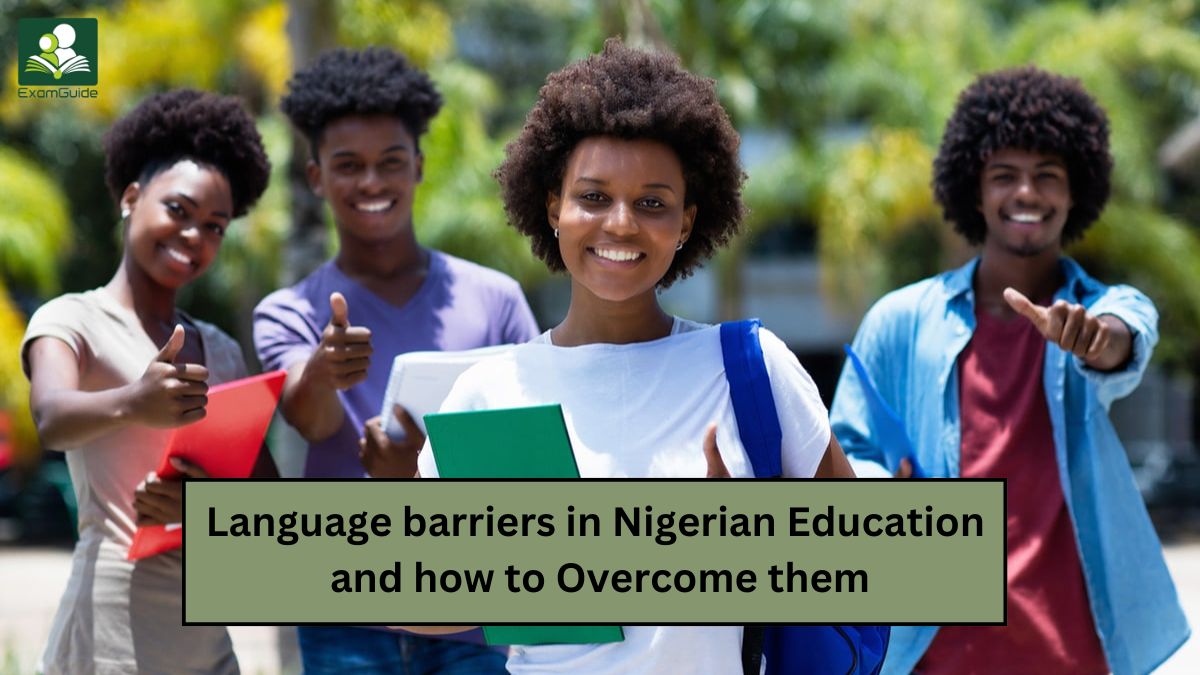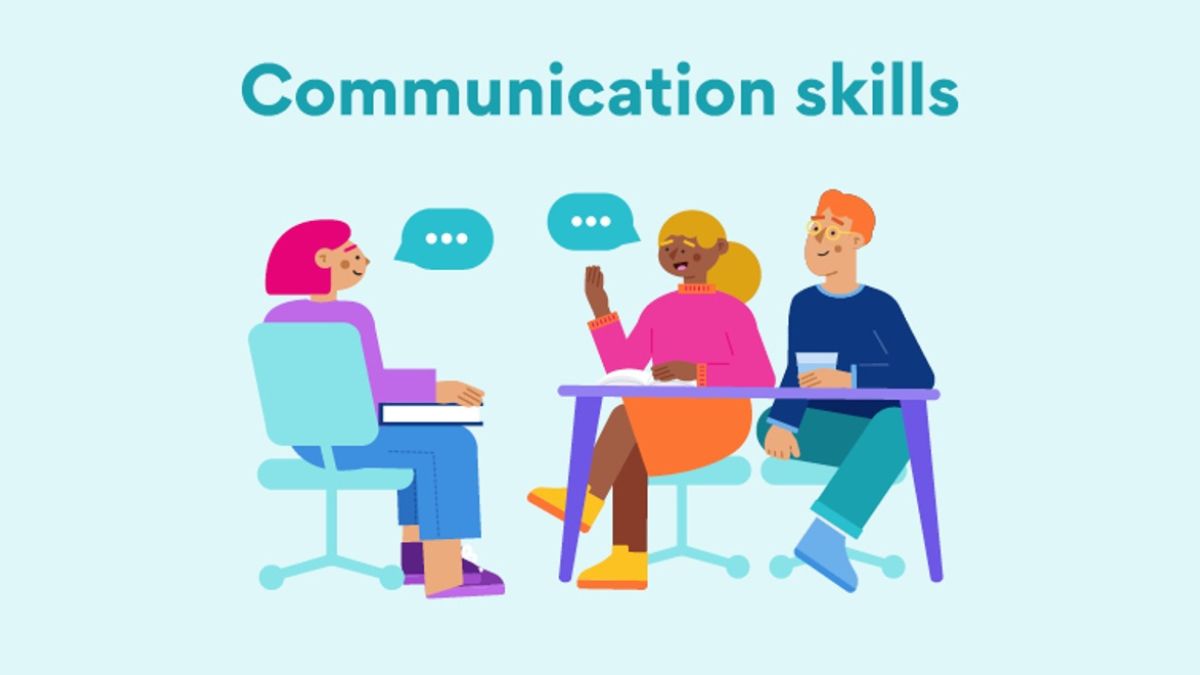
The Importance of Parental Involvement in Education
Parental involvement in education is a cornerstone of a child's academic and personal development. Research has consistently shown that when parents engage in their children's education, the children are more likely to excel academically, exhibit positive behaviour, and develop strong social skills.
This article explores the various aspects of parental involvement, including its impact on academic success, strategies for effective involvement, and the importance of maintaining strong communication with teachers.
Table of Content
What Does Parental Involvement in Education Mean?
Why is it Important to Involve Parents in School?
Benefits of Parental Involvement in Education
How Can Parents Get Involved in Their Children's Education?
How to Avoid Negative Parental Involvement
What Successful Parental Involvement Looks Like
Preparing Your Child For Exams in Nigeria
What Does Parental Involvement in Education Mean?
Parental involvement in education is the active participation of parents or caregivers in their child's learning journey. It goes beyond simply ensuring a child attends school and completes homework.
Active involvement in their child's education takes many forms. Parents can contribute by participating in school functions and activities, advocating for the school community, and supporting their children's learning at home.
Why is it Important to Involve Parents in School?
It Benefits Students
Children whose families are engaged in their education are more likely to:
- Obtain better grades and exam results;
- Obtain a high school and college diploma;
- Foster self-assurance and enthusiasm in the classroom
- Better classroom conduct and social skills.
In one study, researchers examined data collected over time on math achievement and discovered that higher percentages of students who performed at or above proficiency on standardised math achievement tests were associated with families that effectively supported their children's math learning at home.
According to a study, children whose parents are active in the community are also less likely to experience low self-esteem or behavioural problems.
Additionally, classrooms with involved families function better overall, which means that almost all students in the classroom benefit from the improvements.
It Positively Influences Children's Behaviour
Parental involvement in education enhances student attendance, social skills, and behaviour, according to decades of research. It also aids in children's better school adaptation.
Researchers studying children's academic and social development in first, third, and fifth grade discovered, for example, that increases in parental involvement are linked to a decrease in students' "problem behaviours" and an improvement in their social skills.
Additionally, children with highly involved parents showed "enhanced social functioning" and fewer behavioural issues, according to research.
It Benefits Teachers
Teachers gain from parent involvement as well since it enhances classroom conditions and culture. Teachers can better prepare by getting to know their students, and feeling supported by their parents makes them feel more capable of pushing them to learn more and taking academic risks.
Benefits of Parental Involvement in Education
Parental involvement in education offers numerous benefits that positively impact children, schools, and communities. Here are some key benefits:
1. Improved Academic Performance
Students whose parents are actively involved in their education tend to achieve higher grades, score better on tests, and demonstrate greater academic competence across various subjects. This is because parental involvement supports learning at home, reinforces educational goals, and encourages a positive attitude towards school and learning.
2. Enhanced Motivation and Engagement
When parents show interest and support in their children's education, it fosters motivation and a sense of responsibility in students. They become more engaged in their studies, participate actively in classroom activities, and demonstrate a willingness to learn and succeed academically.
3. Positive Attitudes Towards Learning
Parental involvement cultivates a lifelong love for learning by encouraging curiosity, exploration of new ideas, and intellectual growth. Children whose parents value education are more likely to view learning as a rewarding and enjoyable experience, rather than a chore.
4. Better Attendance and Behavior
Students with involved parents often exhibit improved school attendance and behaviour. Parents who reinforce the importance of education and monitor their child’s school attendance and punctuality help create a structured routine that promotes regular school attendance and positive behaviour in the classroom.
5. Improved Social Skills and Emotional Development
Parental involvement supports the development of social skills and emotional well-being in children. By participating in school events, volunteering, and engaging with teachers and peers, children learn to communicate effectively, collaborate with others, and develop empathy and respect for diverse perspectives.
6. Stronger Parent-Teacher Relationships
Effective communication and collaboration between parents and teachers create a supportive network that benefits children’s academic and social development. When parents and teachers work together, they can identify and address academic challenges, set goals, and implement strategies to support the child’s learning needs.
7. Increased Graduation Rates and Higher Education Pursuit
Students with involved parents are more likely to graduate from high school and pursue higher education opportunities. Parental support and encouragement play a crucial role in guiding children through academic transitions, exploring career options, and preparing for college or vocational training.
8. Empowerment and Decision-Making Skills
Parental involvement helps children develop critical thinking skills, problem-solving abilities, and decision-making capabilities. When parents involve children in discussions about educational goals, choices, and consequences, children learn to make informed decisions and take ownership of their academic journey.
9. Community and School Support
Parental involvement strengthens the partnership between home, school, and community. It fosters a sense of belonging and pride in the school community, encourages parental advocacy for school improvements and resources, and promotes collaborative efforts to enhance educational opportunities for all students.
10. Personal Growth and Resilience
Through parental involvement, children gain confidence, resilience, and a positive self-image. Parents who provide encouragement, celebrate achievements, and support children during challenges contribute to their emotional well-being and ability to overcome obstacles in their educational and personal lives.
How Can Parents Get Involved in Their Children's Education?
Parents can be powerful advocates for their children's education in a variety of ways, both at home and at school! Here are some key areas to get involved:
At Home
- Be a Learning Partner: Foster a love of learning by reading together regularly, exploring educational games and activities, and discussing interesting topics.
- Create a Supportive Environment: Dedicate a study space with minimal distractions and establish a homework routine.
- Offer Encouragement and Support: Celebrate achievements, big and small, and provide guidance when facing challenges.
- Open Communication is Key: Talk to your child about their school day, interests, and any concerns. Be a good listener and create a safe space for open communication.
- Integrate Learning into Daily Life: Turn everyday activities into learning opportunities. Count objects while shopping, discuss historical sites on a trip, or explore science through baking cookies.
At School
- Connect with Teachers: Maintain regular communication with teachers to stay informed on your child's progress and collaborate on learning strategies.
- Be Present at School Events: Show your interest by attending school plays, parent-teacher conferences, or sporting events.
- Volunteer Your Time and Skills: Many schools welcome volunteers in classrooms, libraries, or for special events. Offer your skills and support the school community.
- Advocate for the School: Support initiatives that benefit student learning, such as fundraising or promoting positive school environments.
- Join the School Community: Consider joining the PTA or school council to have a voice in shaping school policies and decisions that impact your child's education.
The most important thing is to be present and engaged. The level of involvement can vary depending on your family dynamic and your child's age. Find ways to show your child that their education matters to you and that you're there to support them on their learning journey.
How to Avoid Negative Parental Involvement
Negative parental involvement can be counterproductive and create stress for both children and teachers. Here are some ways to avoid negative involvement and ensure your participation supports your child's education effectively:
1. Communication and Collaboration
- Focus on Partnership: View teachers and the school as allies, not adversaries. Maintain open communication with teachers, discussing concerns respectfully and collaborating on solutions.
- Respect Teacher Expertise: Teachers have extensive training and experience. While asking questions is important, avoid micromanaging or undermining their methods.
- Listen Before Reacting: If you have concerns, gather information before jumping to conclusions. Talk to your child and the teacher to understand the situation fully.
- Avoid Overscheduling: Overscheduling extracurricular activities and commitments can leave your child overwhelmed and stressed. Balance academics, leisure time, and sleep for optimal learning.
2. Positive and Supportive Approach
- Focus on Encouragement: Negative criticism and comparisons with other children are demotivating. Instead, focus on praising effort, celebrating achievements, and offering constructive feedback.
- Avoid Putting Undue Pressure: While setting expectations is important, avoid pressuring your child for unrealistic grades or achievements. Focus on fostering a love of learning and intrinsic motivation.
- Be a Role Model: Children learn by observing their parents. Demonstrate a positive attitude towards education, read for pleasure, and engage in stimulating conversations.
- Respect for Boundaries: Respect your child's need for independence and privacy, particularly as they get older. Offer support without hovering or micromanaging their schoolwork.
- Focus on Solutions: If there's an issue, focus on finding solutions with your child and the teacher. Approach situations constructively instead of placing blame.
The goal is to support your child's educational journey and create a positive learning environment. By prioritizing communication, collaboration, and a positive approach, you can avoid negative involvement and become a valuable asset in your child's education.
What Successful Parental Involvement Looks Like
Experts emphasize the importance of parents being actively present at school and showing interest in their children’s schoolwork. A study on “Parental Involvement in Education Policy” and the National PTA outline six key standards for effective parent/family involvement programs:
1. Regular, Two-Way, Meaningful Communication
What It Looks Like:
- Open Channels of Communication: Schools maintain ongoing, open communication with parents through various means such as emails, newsletters, phone calls, and parent-teacher meetings.
- Responsive Interaction: Both parents and teachers actively listen and respond to each other’s concerns, questions, and suggestions regarding the child's education and well-being.
Examples:
- Teachers send regular updates on student progress and classroom activities.
- Parents proactively communicate with teachers about their child’s needs and home environment.
2. Promotion and Support of Parenting Skills
What It Looks Like:
- Educational Workshops: Schools organize workshops and seminars to help parents develop effective parenting skills that support their children’s academic and personal growth.
- Resource Sharing: Providing parents with resources and information on child development, learning strategies, and emotional support.
Examples:
- Schools offer parenting classes that cover topics such as discipline strategies, study techniques, and child psychology.
- Distributing brochures or online resources that guide parents on how to support homework routines and encourage reading habits at home.
3. Parents Assist in Student Learning
What It Looks Like:
- Homework Help: Parents actively help with homework, providing guidance without doing the work for the child.
- Learning Activities: Engaging children in educational activities outside of school hours, such as museum visits, science experiments at home, and reading together.
Examples:
- Parents set up regular homework time and check completed assignments.
- Organizing family learning nights where parents and children engage in fun educational activities together.
4. Welcoming Volunteers and Seeking Their Support
What It Looks Like:
- Open Door Policy: Schools create a welcoming atmosphere where parents feel comfortable volunteering and participating in school activities.
- Active Recruitment: Actively seeking parent volunteers for various roles such as classroom aides, event organizers, and extracurricular activity leaders.
Examples:
- Schools hosting volunteer orientation sessions to inform parents about how they can contribute.
- Parents helping organize and run school events like fundraisers, field trips, and school fairs.
5. Full Partnership in Decision-Making
What It Looks Like:
- Inclusive Committees: Parents are included in school decision-making bodies such as school boards, advisory councils, and parent-teacher associations (PTAs).
- Collaborative Planning: Schools seek parental input in developing policies, programs, and curricula that affect children and families.
Examples:
- Parents serving on the school council and contributing to discussions on school improvement plans.
- Organizing focus groups and surveys to gather parental feedback on school initiatives.
6. Community Collaboration
What It Looks Like:
- Building Partnerships: Schools form partnerships with local organizations, businesses, and community groups to provide additional resources and support for families.
- Community Engagement: Encouraging parents to participate in community events and initiatives that benefit the school and its students.
Examples:
- Schools collaborating with local libraries to promote reading programs and literacy events.
- Parents participating in community service projects that involve students, reinforcing the connection between education and civic responsibility.
Preparing Your Child For Exams in Nigeria
Nigeria's education system is unique, with important exams like JAMB, NECO and WAEC shaping students' future opportunities. Parental involvement is key to success in this setting.
Preparation and Support
- Study Materials: Parents can provide essential study materials such as textbooks, past question papers, and online resources like ExamGuide to help their children prepare effectively for the JAMB, NECO, WAEC or other examinations.
- Study Timetable: Assisting in creating a structured study timetable ensures that children allocate sufficient time to cover all necessary subjects and topics.
- Conducive Study Environment: Setting up a quiet, well-lit study area at home helps children concentrate and study efficiently.
Registration and Counseling
- Guidance on Registration: Helping children navigate the registration process for JAMB, including selecting exam centers and understanding the requirements.
- Course Selection: Providing advice on choosing courses and universities that align with the child's interests, strengths, and career aspirations.
Emotional Support
- Reducing Stress: Providing emotional and moral support during exam preparation periods to help children manage stress and anxiety.
- Positive Reinforcement: Celebrating small achievements and progress to boost children's confidence and motivation.
Resources and Materials
- Access to Study Resources: Ensuring children have access to necessary textbooks, online resources, and supplementary study materials.
- Tutoring and Extra Lessons: Arranging for extra tutoring or lessons if needed, particularly in challenging subjects.
PTA (Parent-Teacher Association) Involvement
- Regular Attendance: Attending PTA meetings to stay informed about school policies, upcoming events, and issues affecting the school community.
- Voicing Concerns: Actively participating in discussions and voicing concerns or suggestions that can improve the school environment and student outcomes.
Conclusion
Parental involvement in education is a cornerstone for academic success and personal development. In Nigeria, where examinations like JAMB and WAEC play a significant role in determining future opportunities, the importance of active parental engagement cannot be overstated.
By participating in their children's education, providing support at home, and engaging with the school community, parents can significantly enhance their children's academic achievements, behaviour, and long-term success. The collective effort of parents, teachers, and the community is essential in fostering a supportive and enriching educational environment for all students.
No comment found
Related Posts

Top 20 Motivational Quotes for Students to Work Hard

How to Use Past Questions for Effective WAEC and JAMB Preparation

Language barriers in Nigerian Education and how to Overcome them

How to Excel in Mathematics: Tips for Nigerian Students

How to Summarize Notes Effectively for Faster Revision


